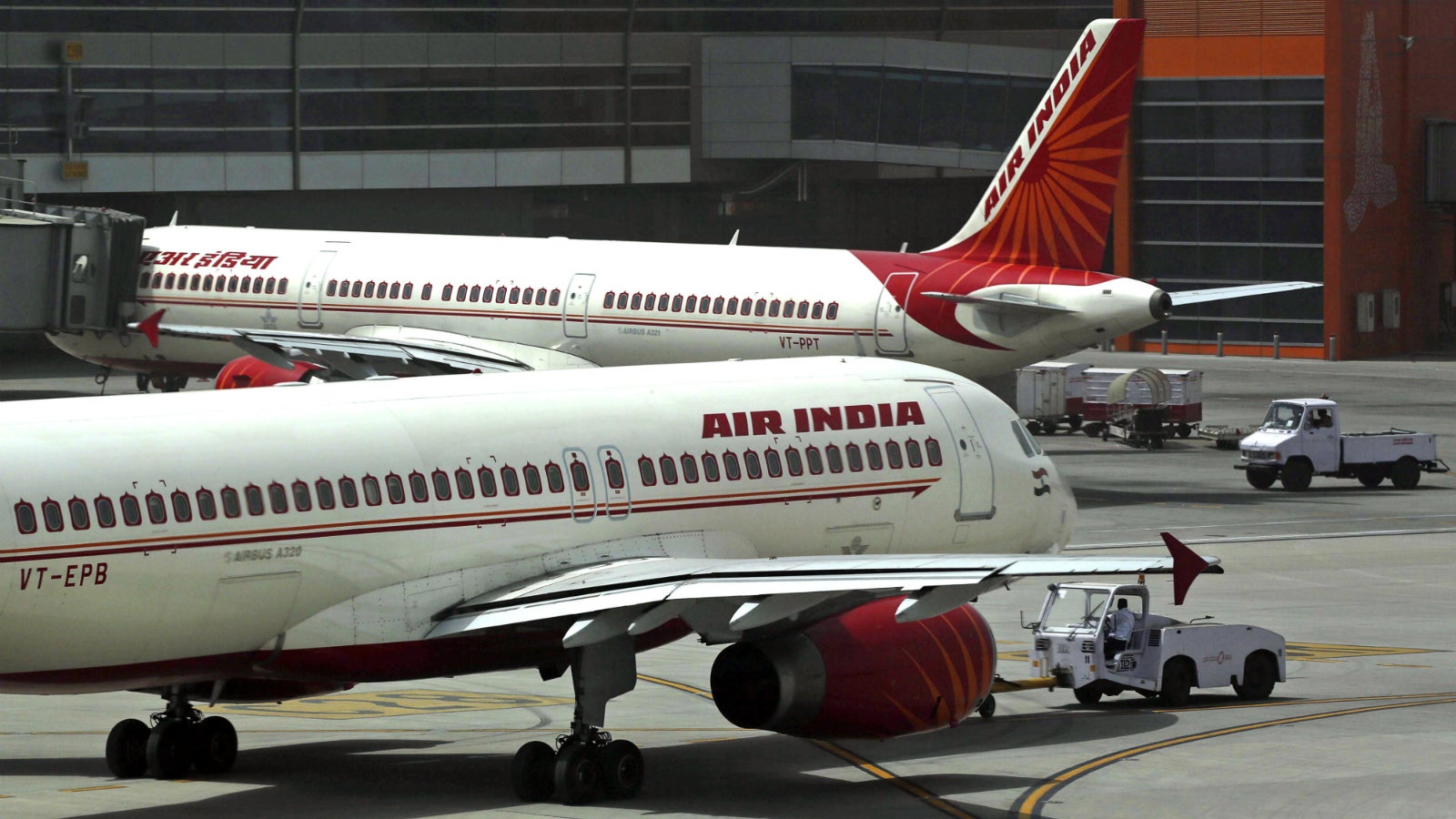Fasten your seat belts. The Air India sale is now ready for take-off
The first piece of Air India may be up for grabs for private players very soon.


The first piece of Air India may be up for grabs for private players very soon.
In the coming fortnight, the Indian government is likely to kick off the sale of its loss-making national airline (pdf) by inviting bids from potential buyers, a finance ministry official told Quartz, requesting anonymity.
A group of ministers overseeing the divestment, headed by finance minister Arun Jaitley, met on March 21 to zero in on some aspects of the sale, the official added.
“We have finalised a few of the options before us. The group of ministers is yet to give its final nod. In the next 10 days, unless the ministers have any major issues with the draft, we will be ready to invite bidders,” the official said, adding that the sale may happen in phases. Once the ball is set in motion, the government hopes to complete the first phase of the sale by December.
The various units of the company may be split and sold separately, the official said.
“Each of Air India’s subsidiaries has its niche, so you have to look at what the market wants in determining what parts to sell,” the official said. For instance, in the first phase, the parent airline may be sold along with its wholly-owned subsidiary, low-cost carrier Air India Charters, the official explained. Other subsidiaries, including Air India Engineering Services, Air India Transport Services, Hotel Corporation of India, and Air India Allied Services, may be sold in later phases.
This is likely to give the government a better bargain, said Dhiraj Mathur, partner at advisory firm PwC India. “Not all of Air India is profitable, so it makes sense that the government will want to sell it piecemeal. In this manner, they may be able to get a better valuation for the group,” Mathur told Quartz.
If the right calls are made, rough estimates show that the firm can fetch up to Rs70,000 crore ($10.7 billion), said Mark Martin, head of aviation consultancy firm Martin Consulting.
The government also has to decide what to do with the group’s mammoth debt. It may sell a part of Air India’s over Rs50,000 crore debt along with the parent airline, the official said, adding that the final decision is awaited.
It is also considering multiple options for retaining a minority stake. The government, reports previously suggested, may retain between 24% and 49%. But, if the government still tries to influence business decisions after the sale, that may be a dampener, Mathur warned.
“Experience has shown that the government can’t run an airline. So now, if they want someone else to run it, they must give management control. While 26% is a minority stake, the government can still block decisions. The government’s stake should be much below that,” Mathur explained.
Meanwhile, what does the government expect of the buyers? The bid document will specify a minimum net worth for the entities bidding for the airline, the official said. Along with it, the government may put other restrictions on buyers, such as a clause that mandates that only other airlines may bid for the parent airline.
A number of foreign airlines are reported to be interested in buying out the Maharajah. Closer home, the Tata group and InterGlobe Aviation, which owns India’s largest airline, IndiGo, too, have been keen.